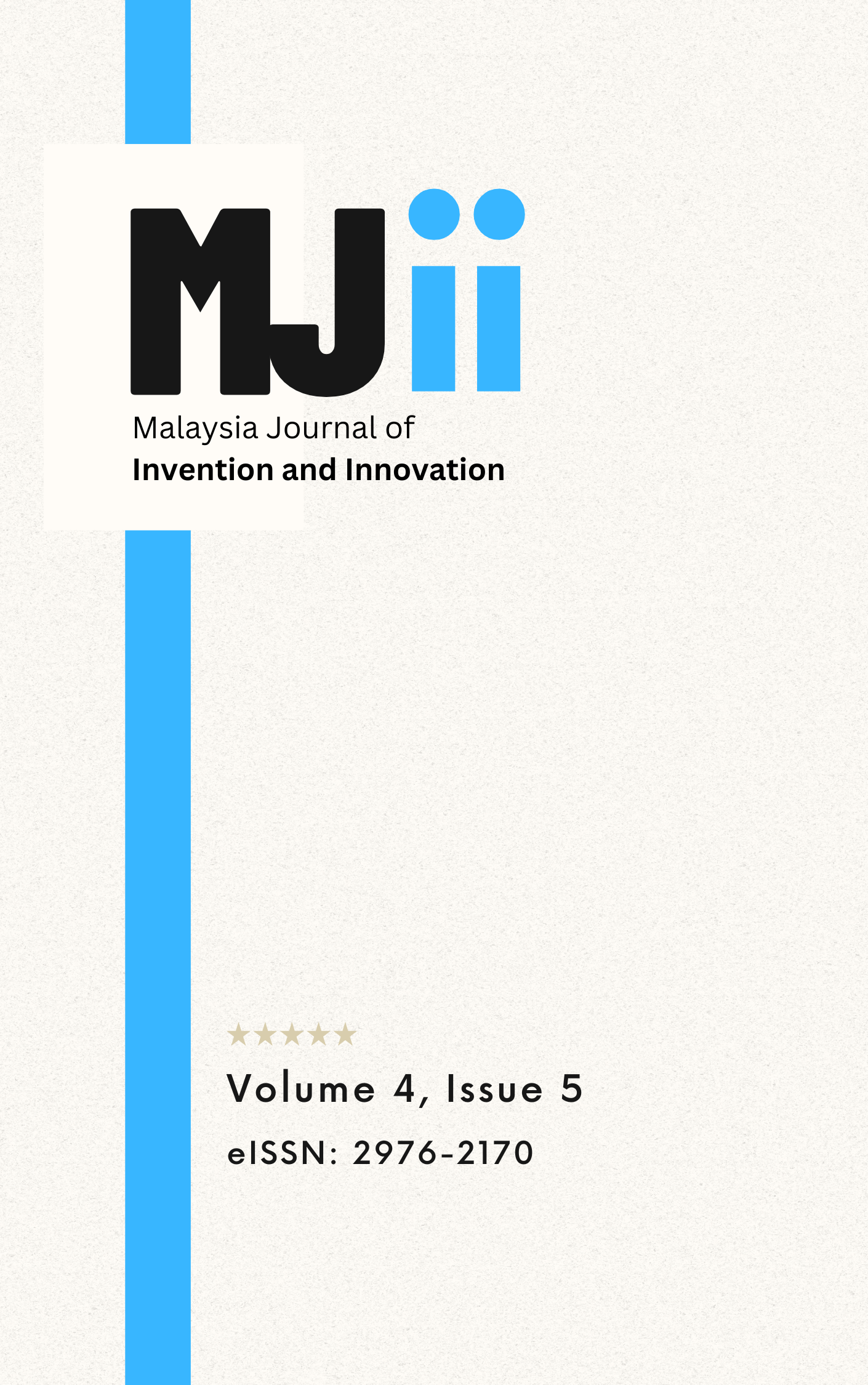Kepuasan Tertunda dan Pengaruh Rakan Sebaya dalam Konteks Sosial Murid- murid Tahap 1 dan Tahap 2 Sekolah Jenis Kebangsaan Cina (Delayed Gratification and Peer Influence in the Social Context of Level 1 and Level 2 Chinese National Type School Students)
DOI:
https://doi.org/10.64382/mjii.v4i5.126Abstract
Kajian ini bertujuan untuk mengenal pasti pengaruh hubungan sosial dan perbezaan gender terhadap tingkah laku kepuasan tertunda dalam kalangan murid sekolah rendah. Reka bentuk kajian menggunakan pendekatan eksperimen kuasi dengan instrumen Snack Delay Task. Sampel terdiri daripada 60 murid sekolah rendah, merangkumi 32 murid Tahap 1 (7–9 tahun) dan 32 murid Tahap 2 (10–12 tahun), dipilih melalui kaedah pensampelan rawak berstrata. Data dikumpul melalui pemerhatian sistematik dalam dua konteks sosial iaitu interaksi dengan 22rakan disukai dan interaksi dengan rakan tidak disukai. Data dianalisis menggunakan Min, Sisihan Piawai, Ujian-t (T-Test), dan Ujian Khi Kuasa Dua (Chi-Square). Keputusan ujian T-Test menunjukkan perbezaan signifikan dalam tingkah laku kepuasan tertunda antara murid Tahap 1 dan Tahap 2, serta antara konteks rakan disukai dan tidak disukai. Walau bagaimanapun, perbezaan berdasarkan gender tidak signifikan. Hasil ujian Chi-Square pula menunjukkan hubungan signifikan antara umur dan tingkah laku kepuasan tertunda, tetapi tiada hubungan signifikan antara gender dan tingkah laku kepuasan tertunda. Dapatan kajian ini menyokong Teori Perkembangan Kognitif Piaget dan Teori Pembelajaran Sosial Bandura, yang menekankan perkembangan kognitif dan faktor sosial dalam kawalan kendiri. Kajian ini memberi sumbangan kepada perancangan intervensi sosial dan pendidikan untuk meningkatkan kawalan kendiri dalam kalangan kanak-kanak.
Downloads
Published
Issue
Section
License
Copyright (c) 2025 Ang Pei Sing, Muhammad Syawal Amran

This work is licensed under a Creative Commons Attribution 4.0 International License.
The authors of MJII retain copyright to the content of the articles.
The content is published under the Creative Commons Attribution (CC BY) 4.0 which allows content to be copied, adapted, displayed, distributed, republished, or otherwise re-used for any purpose, including for adaptation and commercial use provided the content is attributed without any restriction.
Authors Rights
The Journal grants you the following non-exclusive rights, subject to giving propoer acknowledgement to the original journal. The authors may:
(i) to reprint or reproduce the contribution, in whole or in part, in any publication of your interest.
(ii) to use material for teaching purposes; including availability of the matarial in academic course.
(iii) to post a copy of the contribution on your personal or institutional web server, provided that the server is non-commercial and there are no charges for access, and
(iv) to deposit a copy of the contribution in a non-commercial data repository maintained by an institution of which you are a member.
Author's Agreement
Author(s) guarantee the journal the following:
(i) that the contribution is their original work;
(ii) that it contains, no matter what, content that is defamatory or is otherwise unlawful or which invades rights of privacy or publicity or infringes any proprietary rights (including copyright);
(iii) that the contribution has not been published elsewhere in whole or in part and that no agreement to publish is outstanding other than this agreement. Author(s) agree to be responsible and hold the journal, its editors, staff and affiliate organizations harmless against any claims arising from or related to the breach or inaccuracy of any of the guarantees listed above.
Disclaimer
The editorial team of the MJII and the publication team of Academica Press Solutions share no responsibility regarding the views and opinions expressed by the authors.
The content published in MJII is Open Access and can be shared, adapted, reproduced, reprinted, after appropriate acknowledgment and giving due credit to the author(s) work.


